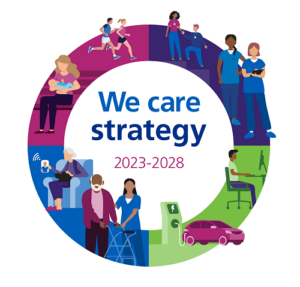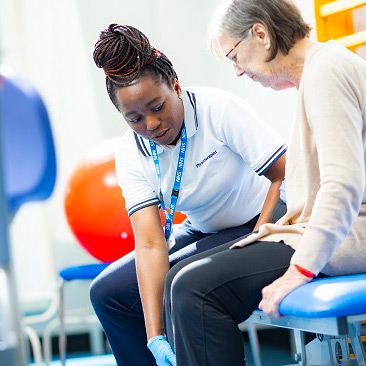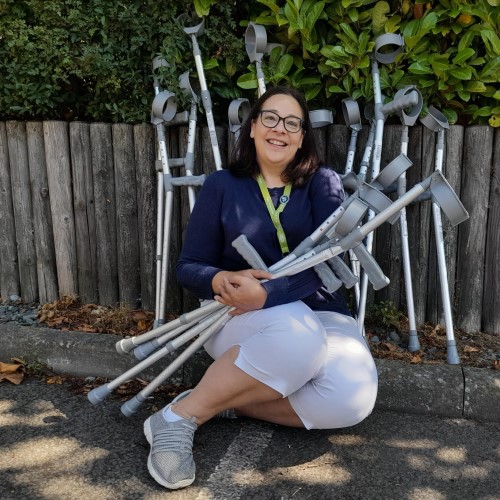Our reports
Read our full 23/24 annual report, or see our other reports.
We care – the progress we’ve made in our first year
The launch of our new We care strategy in April last year signalled a new focus for the way ahead and four big ambitions for the future – to make KCHFT a great place to work for our colleagues, to put our communities first, to provide a better patient experience and deliver sustainable care.
Designed to focus on making the biggest breakthroughs to patient care and the working lives of our colleagues, it is shaped by what the public, patients and clients, colleagues and our stakeholders told us really matters to them.
Driven by data, we have taken a continuous quality improvement approach, learning along the way. But before we dive into year two of our strategy, we thought it was important we reflected and shared some of our progress.
Nothing we have accomplished this year, happens without the dedication and professionalism of our 5,300 amazing colleagues, who delivered more than 70 different services to communities across Kent and Medway, East Sussex and parts of London.
As you will see in this impact report, which shows just a snapshot of the work we achieved, we’re pleased with the progress #TeamKCHFT made in our first year and excited about where we go next.




















 This has helped us to adopt a new approach to staffing and skills in some areas. We have seen progress on helping patients, reducing pressure on teams and providing new creative career pathways for people.
This has helped us to adopt a new approach to staffing and skills in some areas. We have seen progress on helping patients, reducing pressure on teams and providing new creative career pathways for people.